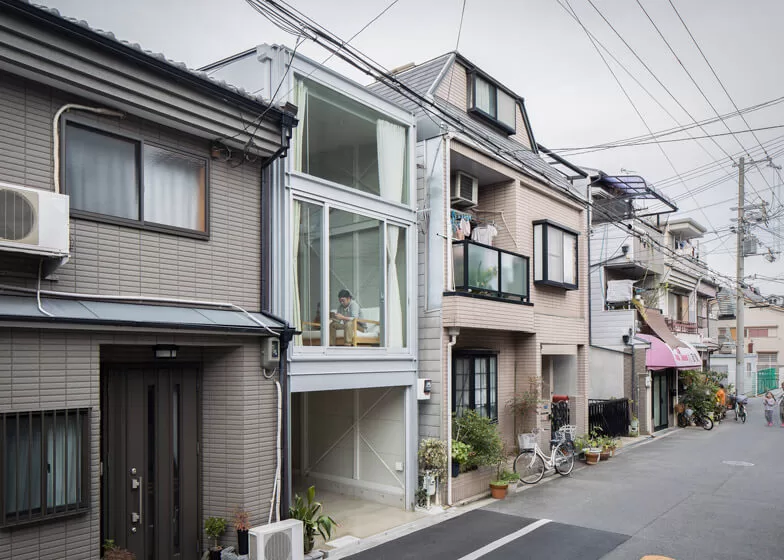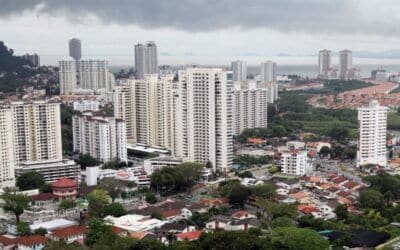Last updated January 4th, 2024.
Asia has captured foreign investors’ attention with its booming economy, natural resources, and growing population.
Therefore, the continent is now a magnet for global businesspeople and entrepreneurs seeking higher returns and a lower cost of doing business.
Digital nomads, for instance, have flocked to Thailand to start location-independent businesses, while investors are looking towards Cambodia and Vietnam to take advantage of urbanization and solid demographic trends.
However, while investing in Asia can be lucrative, the region can also be challenging to navigate for foreign investors.
Language barriers, non-Western business norms, and restrictive laws can significantly turn off even the most adventurous capitalists.
In the world of real estate, for instance, foreigners can often miss out on opportunities due to restrictions on foreign land ownership. Most Asian countries allow non-citizens to buy condos, yet very few actually allow foreigners to own houses or land legally.
Because of this, if you’re planning to buy a house or a plot of land in Asia, you should also consider the following countries that allow foreigners to own land and houses on a freehold basis.
If your primary goal is to make returns, we don’t necessarily recommend all of these countries for real estate investment though. We’re simply addressing them so you have a better understanding of your options to buying land and houses.
With that said, below are Asia’s five easiest countries to own land as a foreigner.
Malaysia
If you want to buy land or houses in Southeast Asia, you must invest in Malaysia. It’s the only place in Southeast Asia where foreigners can own land.
Malaysia is one of the most investor-friendly countries in Asia. The country generally welcomes foreign capital, while restrictions on land ownership are few.
In fact, the only type of real estate foreigners can’t buy are “heritage properties”, old shophouses, or historic houses from the colonial era.
Besides Malaysia’s openness toward foreign investors, it’s also a solid option if you’re seeking a second residence from your real estate investment. The nation is significantly developed by Southeast Asian standards as well.
You can get a renewable 10-year visa in Malaysia residency by investing through its My Second Home Program (MM2H), which has recently announced an updated requirements guideline for applicants. They appear to be revising them once again in 2024.
Generally, we suggest Malaysia as a good bet for investors looking to buy land or houses in Asia.
While rental yields are only about 3% in large cities such as Kuala Lumpur and Penang, the real estate market is fairly priced – only about $4,000 per sqm for prime residential floor space. There’s lots of room for capital appreciation here.
And of course, the MM2H program makes it a relatively straightforward process to get a residence permit in Malaysia if you’d like to actually live here.
South Korea
Like Malaysia, South Korea doesn’t have many restrictions on foreign land ownership either. This openness to foreign investment makes quite a sense, given how internationalized Korea is.
South Korea’s modern cities, friendly people, and innovative culture attract expats worldwide. Naturally, these foreigners often want to buy their own property.
Unfortunately, becoming a South Korean resident is rather tricky as a foreigner. Like most of its neighbors, the Republic of Korea is picky when issuing long-term visas.
There’s one exception to this rule… Jeju Island!
This small island, located off the southern coast of the Korean Peninsula, is a special administrative region that allows nearly everyone to visit without a visa (even citizens of mainland China, who often have a hard time getting anywhere).
Likewise, Jeju also offers an investor residence permit for anyone willing to buy 1 billion won (about $1 million) worth of real estate on the island. Such a residence permit can eventually lead to Korean citizenship if you reside here full-time.
Note that if you’re set on living in Seoul or Busan proper, you must go through normal channels to get residency in Korea. Buying property outside specific approved areas will not grant you the path to an investment visa.
South Korea can be an excellent place for the correct type of foreign investor to invest in land or houses, especially if you don’t mind spending five years living on either Jeju Island or Incheon to qualify for permanent residence and, eventually, Korean citizenship.
Seoul’s rental yields remain low, and prices per square meter rank among the world’s highest. But you can make better returns in developing areas on the outskirts of the city core or in Korea’s second-tier cities like Busan.
And, of course, if you’re open to living on Jeju Island, you can also get a residence permit and start a process that can eventually give you a South Korean passport.

Jeju Island may get a bit dull if you enjoy urban environments. Yet they offer East Asia’s only actual property investment visa, making South Korea one of the top countries where foreigners can own land.
Taiwan
Like both Malaysia and South Korea, Taiwan is a developed economy with minimal restrictions on foreign property ownership. This makes it easy to buy land or houses here regardless of your citizenship.
With that said, we typically don’t recommend buying property in Taiwan for two reasons:
First off, owning property in Taiwan doesn’t automatically grant you the right to live here as a foreigner.
Unlike the previous two countries on our list, which offer some form of investor residency program to foreign property owners, you’ll need to go through normal immigration channels to live permanently in Taiwan.
Second, as we’ve mentioned in previous articles, property in Taiwan is simply overpriced. Despite Taiwan’s overall solid economy, its real estate sector just isn’t that great.
Buyers from mainland China have driven up prices in cities such as Taipei while rental yields sit at an abysmal 1.5%.
Taiwan, then, illustrates the old saying, “Just because you can… doesn’t mean you should”.
Yes, you can purchase a house or undeveloped land in Taiwan. But there are much better countries in Asia where foreigners can own land.
Japan
Similar to Korea, there are no limits whatsoever on the types of properties that foreigners can buy in Japan. You can own fully freehold land and structures in your own name here.
Yet Japan is another country that we wouldn’t recommend for real estate investment purposes. Due to natural disasters such as earthquakes, structures tend to lose their value after a few decades. Meanwhile, Japan’s aging population puts its real estate market in decline.
Additionally, like many of its neighbors, Japan’s immigration policies are restrictive. Owning property in the country alone doesn’t give you the right to live here. You’ll need a work, business, or other type of visa to live in Japan full-time.
Therefore, while buying land as a foreigner in Japan might be possible, we couldn’t suggest doing so unless you fully intend on actually moving here.

It’s possible to buy cheap houses in Japan’s countryside. Unfortunately, these properties are almost always located in areas facing severe population decline and the structure is often falling apart.
Singapore
Finally, we have Singapore – a city-state well known for its openness to foreign wealth.
In Singapore, you can legally own condos, houses, and even freehold land regardless of nationality. While owning a landed house is complicated as a foreigner (even if possible), Singapore is absoutely one of the easiest countries in Asia to buy a freehold condo.
Foreigners are allowed to own land and houses in Singapore, at least in theory. Yet it’s complex and incredibly expensive in practice.
In fact, to own any type of land or a Good Class Bungalow (GCB) as a foreigner, you must first obtain permission directly from the government.
Such an approval requires a substantial investment (consider $30 million worth of land). It must also prove that the purchase “benefits Singapore’s economy” – a purposefully vague phrase which appears to get stricter each year.
On top of those restrictions, Singapore’s housing market is also one of the world’s most expensive, and it’s not an easy feat to become a permanent resident there.
Thus, while Singapore can be a great place for banking or storing your wealth, it isn’t always the most favorable for real estate transactions.
In our opinion, neighboring Malaysia is a far better investment if you’re looking for one of the rare places in Asia where foreigners can own land.
Skip the Next Western Recession
Learn the best places to invest - and where to avoid - by downloading our free Investment Cheat Sheet.







